![Feldman, Morton (Radio-Sinfonie-Orchester Frankfurt): Atlantis (Hat [now] ART) Feldman, Morton (Radio-Sinfonie-Orchester Frankfurt): Atlantis (Hat [now] ART)](https://www.teuthida.com/productImages/misc4/26626.jpg)
A much-needed reissue of this 2000 CD of three orchestral works from late composer Morton Feldman--"String Quartet and Orchestra" (1973), "Oboe and Orchestra" (1976), and "Atlantis" (1959)--demonstrating the evolution of his incredible control in working with tone, mood and instrumental combinations, from his earliest large-scale work to later mature works.
Out of Stock
Quantity in Basket: None
Log In to use our Wish List
Shipping Weight: 3.00 units
Sample The Album:
Morton Feldman-composer
Lucas Vis-conductor
Radio Sinfonie Orchester Frankfurt-orchestra
Click an artist name above to see in-stock items for that artist.
UPC: 52156020622
Label: Hat [now] ART
Catalog ID: hat(now)ART206
Squidco Product Code: 26626
Format: CD
Condition: New
Released: 2018
Country: Switzerland
Packaging: Cardboard Gatefold 3 Panels
Recorded at Sendesaal Hessischer Rundfunk, in Frankfurt, Germany, on October 23rd and 24th, 1997, by Udo Wustendorfer.
"As we relate to music in an on-going condition of becoming, and not (like painting) a state of being, we're able to experience these works much as Morton Feldman did, as they happen, with an equal sense of wonder and delight." (Art Lange) A major figure in 20th-century music, Morton Feldman was a pioneer of indeterminate music, a development associated with the experimental New York School of Composers. Feldman's works are characterized by notational innovations that he developed to create his characteristic sound: rhythms that seem to be free and floating, pitch shadings that seem softly unfocused, a generally quiet and slowly evolving music, and recurring asymmetric patterns. He wrote the title track of this album, Atlantis, in 1959."-Hat [now]Art
"The three orchestral works on this CD -- "String Quartet and Orchestra" (1973), "Oboe and Orchestra" (1976), and "Atlantis" (1959) -- all reflect Feldman's ongoing study of texture, color, and cluster within a larger context than his chamber or solo pieces. They provide evidence en masse that Feldman's method -- as developed from his early graphic notation style to his composition by intuitive assemblage in the middle years to his absolute control over every timbre (while granting the performer and intuitive energy of interpretation) in his late works -- worked in any compositional or performance context. "String Quartet and Orchestra" uses Feldman's instinctual use of repetition idiomatically with different shadings and clusters. The overtonal architecture constructed by the quartet is responded to fragmentally by the orchestra. Very gradually the palette expands and the architecture grows seemingly exponentially, even though only three more clustered tones are added. The effect is one of tension created by ambiguity. "Oboe and Orchestra" from three years later pits the tonal structure of the soloist in painterly opposition to that of the orchestra; colors not only contrast, but also clash in different spaces until they both give way and meld into a new schemata. Feldman created a dramatic element that allowed for the soloist's phraseology to reflect the score from his own sense of tone and breath, whereas the orchestra followed the composer's notion of pitch to the letter. The long drones accent the small dissonances and create yet one more sonic possibility for tones to come together in order to form new ones. "Atlantis" from the early period is included here, presumably because it is the earliest of Feldman's large-scale works. It has a fluttery nature, with scurrilous notes and clusters running over the top of the score while the notion of an "orchestra" (most of the work is played by woodwinds, a piano, and strings) is seldom invoked. But it does mark a rediscovery of form over the decentering, deconstructive work that he, John Cage, Earle Brown, and Christian Wolff did in the late '40s and early '50s (with form as an extension of instinct and energy, opening itself to random elements rather than giving way to them). It is much faster than his later work, but dynamically as subtle as anything he ever wrote. Along with "Coptic Light," it is a joy to hear Feldman's larger-scale works finally being performed and recorded. Hat has done its typically excellent job in its selection of performers and in its manner of recording, giving Feldman's work state-of-the-art treatment and, for now at least, a definitive recording of three obscure works by an under-celebrated 20th century master."-Thom Jurek, All Music
Get additional information at All Music
Artist Biographies
• Show Bio for Morton Feldman "Morton Feldman was born in New York in 1926 and died there in 1987. Just like Cage, a close friend, he was an American composer - an American artist - an American in the true sense of the word. He identified himself by differentiating his views on composition from those of his colleagues in Europe. He was proud to be an American because he was convinced that it enabled him the freedom, unparalleled in Europe, to work unfettered by tradition. And, he was an American also in what may have been a slight inferiority complex in the face of cultural traditions in Europe, something he proudly rejected and secretly admired. Like any true artist, Feldman was endowed with a sensitivity for impressions of a wide variety of sources, literature and painting in particular. His affinity to Samuel Beckett has enriched music literature by a unique music theatre piece, Neither, and two ensemble works. His friendship with abstract impressionist painters gave birth to a range of masterpieces, Rothko Chapel in particular. But even the knotting of oriental rugs gave Feldman musical ideas (The Turfan Fragments). To the question as to why he preferred soft dynamic levels, he replied: "- Because when it's loud, you can't hear the sound. You hear its attack. Then you don't hear the sound, only in its decay. And I think that's essentially what impressed Boulez . That he heard a sound, not an attack, emerging and disappearing without attack and decay, almost like an electronic medium. Also, you have to remember that loud and soft is an aspect of differentiation. And my music is more like a kind of monologue that does not need exclamation point, colon, it does not need..." Feldman also had an intriguing reply up his sleeve when it came to answering the question why he composed in the first place: "You know that marvellous remark of Disraeli's? Unfortunately, he was not a good writer, but if he was a great writer, it would have been a wonderful remark. They asked him whydid he begin to write novels. He said because there was nothing to read. (laughs). I felt very much like that in terms of contemporary music. I was not really happy with it. It became like a Rohrschach test". More than twenty years since his death, Morton Feldman's music is as alive as ever." ^ Hide Bio for Morton Feldman • Show Bio for Lucas Vis "Lucas Vis (born February 19, 1947 in Bergen(North Holland)) is a Dutch conductor and composer. Vis attended from 1962 to 1969 the Musiklyzeum in Amsterdam, where he studied cello with Reinier Bresser and orchestral conducting with Jaap Spaanderman. After completing a master class in conducting at the Mozarteum in Salzburg, he was an assistant to Bruno Maderna from 1967 to 1973. He also attended courses with Pierre Boulez in Basel, Jean Fournet, Marius Constant, Dean Dixon and Paul Hupperts and took composition lessons with Jan van Vlijmen. In 1971 he received the Koussevitzky Tanglewood Composition Prize. From 1976 to 1979 he was director of the Nederlands Ballet Orkest, then until 1983 chief conductor of the Brabants Orkest. From 1988 to 1996 he directed the Noordhollands Philharmonisch Orkest. He was also director of the Conservatory in Maastricht until 1998, then until 2005 rector of the Conservatory of Amsterdam. Vis conducted the major orchestras of the Netherlands such as the Concertgebouw Orchestra, the Rotterdam Philharmonic Orchestra and the Radio Philharmonisch Orkest, as well as orchestras in England, France, Austria, Denmark, Germany and Italy. He collaborated with composers such as John Cage, Mauricio Kagel, Karlheinz Stockhausen and Louis Andriessen and directed the Dutch opera premieres of works by Otto Kettings, Theo Loevendies and Guus Janssens." ^ Hide Bio for Lucas Vis
11/20/2024
Have a better biography or biography source? Please Contact Us so that we can update this biography.
11/20/2024
Have a better biography or biography source? Please Contact Us so that we can update this biography.
Track Listing:
1. String Quartet & Orchestra 30:58
2. Oboe & Orchestra 16:40
3. Atlantis 11:26
Hat Art
Compositional Forms
Avant-Garde
Large Ensembles
Staff Picks & Recommended Items
New in Compositional Music
Search for other titles on the label:
Hat [now] ART.


![Feldman, Morton (Radio-Sinfonie-Orchester Frankfurt): Atlantis (Hat [now] ART) Feldman, Morton (Radio-Sinfonie-Orchester Frankfurt): Atlantis (Hat [now] ART)](https://www.teuthida.com/productImages/full/26626.Full.jpg)
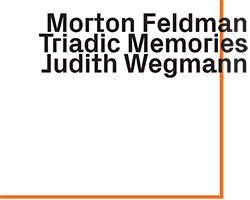



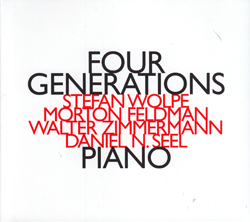
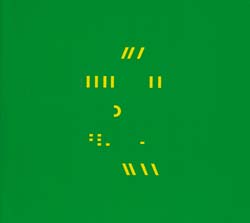


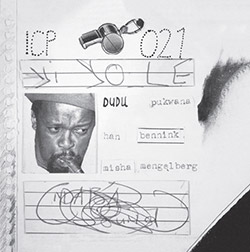

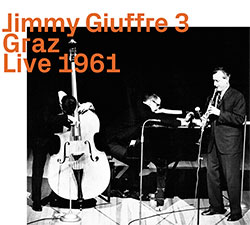

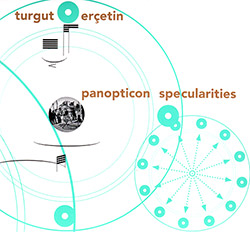

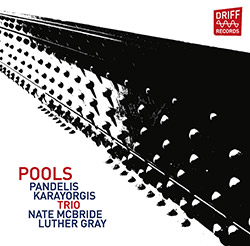
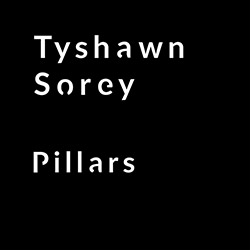
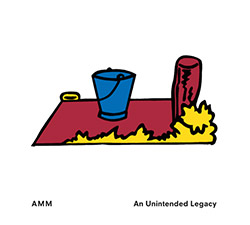
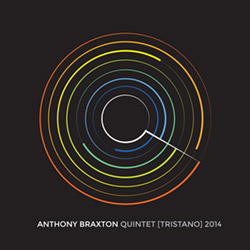
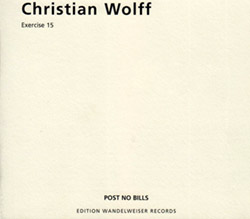
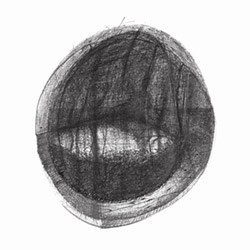

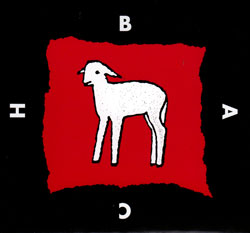


![Guy, Barry / Ken Vandermark: Occasional Poems [2 CDs]](https://www.teuthida.com/productImages/misc4/34849.jpg)
![Novoa / Carter / Mela Trio: Vol.1 [VINYL]](https://www.teuthida.com/productImages/misc4/35236.jpg)


![Elephant9 : Mythical River [VINYL]](https://www.teuthida.com/productImages/misc4/34624.jpg)
![Evans, Peter (Evans / Eldh / Black): Extra [VINYL]](https://www.teuthida.com/productImages/misc4/35279.jpg)

![McPhee, Joe: Straight Up, Without Wings [BOOK]](https://www.teuthida.com/productImages/misc4/35454.jpg)
![Jeck, Philip: rpm [2 CDs]](https://www.teuthida.com/productImages/misc4/35455.jpg)













![Barker / Parker / Irabagon: Bakunawa [VINYL]](https://www.teuthida.com/productImages/misc4/35533.jpg)
![Blaser, Samuel / Marc Ducret / Peter Bruun: Dark Was The Night, Cold Was The Ground [VINYL 10-inch]](https://www.teuthida.com/productImages/misc4/35492.jpg)








![Warren, Kenny (Warren / Hoffman / Ellman): Sweet World [VINYL]](https://www.teuthida.com/productImages/misc4/35451.jpg)




![Blake, Ran / Dave Knife Fabris: Live Amsterdam 2006, First Visit [CD + POSTCARDS]](https://www.teuthida.com/productImages/misc4/35275.jpg)













![DNS: Taking Big Bites Of The Khandas Three Cafes Deep [2 CDs]](https://www.teuthida.com/productImages/misc4/35334.jpg)




![Cleaver, Gerald: The Process [VINYL]](https://www.teuthida.com/productImages/misc4/34966.jpg)




![Alva Noto: HYbr:ID II [VINYL 2 LPs]](https://www.teuthida.com/productImages/misc4/35201.jpg)

![Baron, Derek / Luke Martin: Distinct and Concealed [CASSETTE + DOWNLOAD]](https://www.teuthida.com/productImages/misc4/35079.jpg)

![Lyle, Erica Dawn : Colonial Motels [CASSETTE + DOWNLOAD]](https://www.teuthida.com/productImages/misc4/35080.jpg)









![Sanna, Claudio: Compositori Sardi Contemporanei II [2 CDs]](https://www.teuthida.com/productImages/misc4/35317.jpg)







![Zurria, Manuel: Fame di Vento [3 CDs]](https://www.teuthida.com/productImages/misc4/35167.jpg)

![Granberg, Magnus / Nattens Inbrott / Skogen: Holde Traume, Kehret Wieder! [2 CDs]](https://www.teuthida.com/productImages/misc4/35038.jpg)
![Frey, Jurg: Outermost Melodie [2 CDs]](https://www.teuthida.com/productImages/misc4/35039.jpg)

![Pavone, Jessica: Reverse Bloom [VINYL]](https://www.teuthida.com/productImages/misc4/34895.jpg)




![Modney (Modney / Wooley / Gentile / Roberts / Pluta / Symthe / ...): Ascending Primes [2 CDs]](https://www.teuthida.com/productImages/misc4/34852.jpg)









![Elephant9 with Terje Rypdal: Catching Fire [VINYL 2 LPs]](https://www.teuthida.com/productImages/misc4/35355.jpg)
![Deerlady (Obomsawin, Mali / Magdalena Abrego): Greatest Hits [VINYL]](https://www.teuthida.com/productImages/misc4/34876.jpg)




![Haino, Keiji: Black Blues [2 CDs]](https://www.teuthida.com/productImages/misc4/35109.jpg)



![Surplus 1980: Illusion of Consistency [CD]](https://www.teuthida.com/productImages/misc4/35069.jpg)
![Staiano, Moe: Away Towards the Light [VINYL + DOWNLOAD]](https://www.teuthida.com/productImages/misc4/35037.jpg)



![Caveira (Gomes / Sousa / Abras / Ferrandini): Ficar Vivo [VINYL]](https://www.teuthida.com/productImages/misc4/34643.jpg)
![Gregg, J. J. / David Van Auken: Lunar Prairie [CD w/ DOWNLOAD]](https://www.teuthida.com/productImages/misc4/34611.jpg)

![Coultrain: Mundus [VINYL]](https://www.teuthida.com/productImages/misc4/32439.jpg)
![Mattin: Songbook #6 [VINYL]](https://www.teuthida.com/productImages/misc4/27317.jpg)
![Punkappella: Wake Up [7-inch VINYL]](https://www.teuthida.com/productImages/misc4/17519.jpg)
![Residents, The: WARNING: UNiNC.: Live And Experimental Recordings 1971-1972 [VINYL 2 LPs]](https://www.teuthida.com/productImages/misc4/31521.jpg)
![Coultrain: Phantasmagoria [VINYL]](https://www.teuthida.com/productImages/misc4/30142.jpg)
![Lennon, Sean Ono: Asterisms [VINYL]](https://www.teuthida.com/productImages/misc4/34517.jpg)

![Coley, Byron: Dating Tips for Touring Bands [VINYL]](https://www.teuthida.com/productImages/misc4/17906.jpg)

![Lost Kisses: My Life is Sad & Funny [DVD]](https://www.teuthida.com/productImages/misc4/lostKissesDVD.jpg)